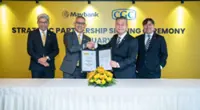PETALING JAYA: Experts support another small and medium enterprise (SME) master plan, saying that it is crucial as it will set the tone for the sector’s growth and ensure its resiliency given that it forms the backbone of the country’s economy.
The last such plan was from 2012 to 2020.





